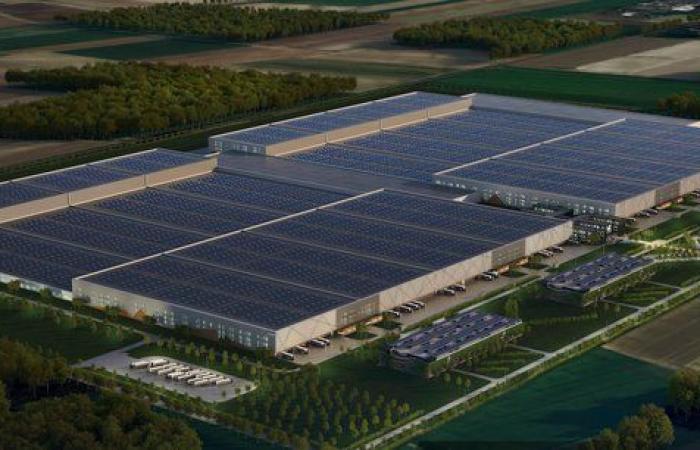The first was illustrated in creating a unit dedicated to environmental justice in 2005, then as California prosecutor prosecuting several oil majors. LThe second, he announced in 2017 the United States’ exit from the Paris agreement adopted two years earlier by the international community. Difficult to find further apart than the two candidates on the subject of climate. However, the divisive subject was largely absent from the campaign. And the positions of Trump and Harris have gradually become closer on the IRA (Inflation Reduction Act).
Although this proactive investment policy is primarily intended to boost, thanks to subsidies and tax credits, the green technologies hated by the Republican candidate, a big supporter of “Big Oil”, he has not announced any a look back at a strategy already crowned by 336 billion dollars of investments.
For her part, Kamala Harris follows in the footsteps of Biden, who has not reversed the protectionist policy established by Donald Trump with customs duties intended to bar Chinese products from entering American territory. Last spring, the president approved 100% taxes on electric vehicles starting January 1, 2025.
Risk of Chinese competition
Seen from Europe, the IRA amounts to “everything but China”. But basically, this system does not benefit Europe, quite the contrary. In a domino effect that Neil Makaroff, director of Strategic Perspectives and expert at the Jean Jaurès Foundation, “ if the Chinese cleantech champions are barred from the American market, they will flood the European market with even more commercial aggressiveness ». « Above allunderlines this time Célia Agostini, director of Cleantech for France, that China in any case practices a policy of overcapacity and low prices intended to flood foreign markets. »
THE 27, whose economy is very open and for certain Member States (notably Germany) very dependent on their exports to the Chinese market, cannot agree on a protectionist policy. However, at the forefront of Chinese imports are cleantech industries, such as solar panels and electric cars.
Chinese competition exacerbated by American customs tariffs is not the only threat weighing on European green technologies. For two years, much more favorable conditions for financing innovation than in Europe have attracted many cleantech start-ups to the United States. “ If this situation persists, it will therefore be in the United States that the next generations of solar panels or electric batteries will see the light of day. », s’alarme Neil Makaroff. « We have even seen battery factory projects leave Europe for the United States » deplores Célia Agostini. However, these industrial projects represent the jobs of tomorrow.
The price of energy
Kamala Harris should continue this policy, but within the international game and multilateralism. “It could be more open to the establishment of common standards on both sides of the Atlantic », wants to believe Neil Makaroff. Trump, for his part, could reverse certain standards (such as the emission ceilings for automobiles or industrial sites) and redirect part of the funds that the IRA earmarks for green technologies towards fossil fuels or polluting industries.
But, far from benefiting European cleantech, these measures would contribute to further lowering the price of energy in the United States. The key: an increased differential with European prices, which are already penalizing manufacturers in the Old Continent, including those in cleantech. Worse, the Republican could go so far as to turn off the tap on American LNG exports and cause an energy crisis as severe as that created by the war in Ukraine, “ which would plunge Europe into a catastrophic situation », Recognizes Jules Nyssen, president of the Renewable Energies Union. “ But if Europe respects its decarbonization objectives, it will eventually be able to do without both Russian gas and American LNG », he recalls. But not for several years.
This heightened American competition, which could fuel Chinese competition, also risks harming the acceptability of the ecological transition. “ Europeans, who for some feel like the losers of globalization, should not also be the losers of a transition that would take place with foreign equipment, particularly Chinese. », warns Célia Agostini.
Europe in search of protectionism
Trump or Harris, the weaknesses of European cleantech are in reality structural, and require a reaction. “ For the first time in history, the necessary energy transition is not motivated by a gain in competitiveness », observes Jules Nyssen. On the contrary, it requires renunciations and, in the short term, increases the price of energy. There is therefore no point in investing according to market laws alone, which makes the constraints or standards established by States all the more necessary. Such as the French MaPrimRenov schemes or the Heat Fund, whose recent cuts in the 2025 budget are regretted by the president of the SER.
“Europe will have to react “, confirms Neil Makaroff, who for his part deplores a drop in national investments, precisely in the industries most necessary for the ecological transition, while the end of the temporary system of the recovery plan looms on the horizon 2026. ” It is up to Europe to do what it has to do, especially in this uncertain context. », concludes Célia Agostini, who observes that in Europe there are “ a challenge of mobilizing private money, which is abundant but which today does not finance what it should ».
Industrial policy
« Border measures would not be enough without a real industrial policy », insists Neil Makaroff. “ In addition to clear sectoral policies and choices, Europe must support the emergence of industrial sectors through public procurement and public guarantees such as those put in place by Canada.specifies the director of Cleantech for France. Private order also has a role to playshe adds. We need to get large companies working with these new technologies, as Renault does with the French battery manufacturer Verkor ».
« With Kamala Harris, who will better respect the international game, the worst would be avoidedbelieves Jules Nyssen. But Europe will not escape reflection on itself, on the role it intends to play in a world economy which no longer has anything liberal, but which is marked by the return of nation-states. »






